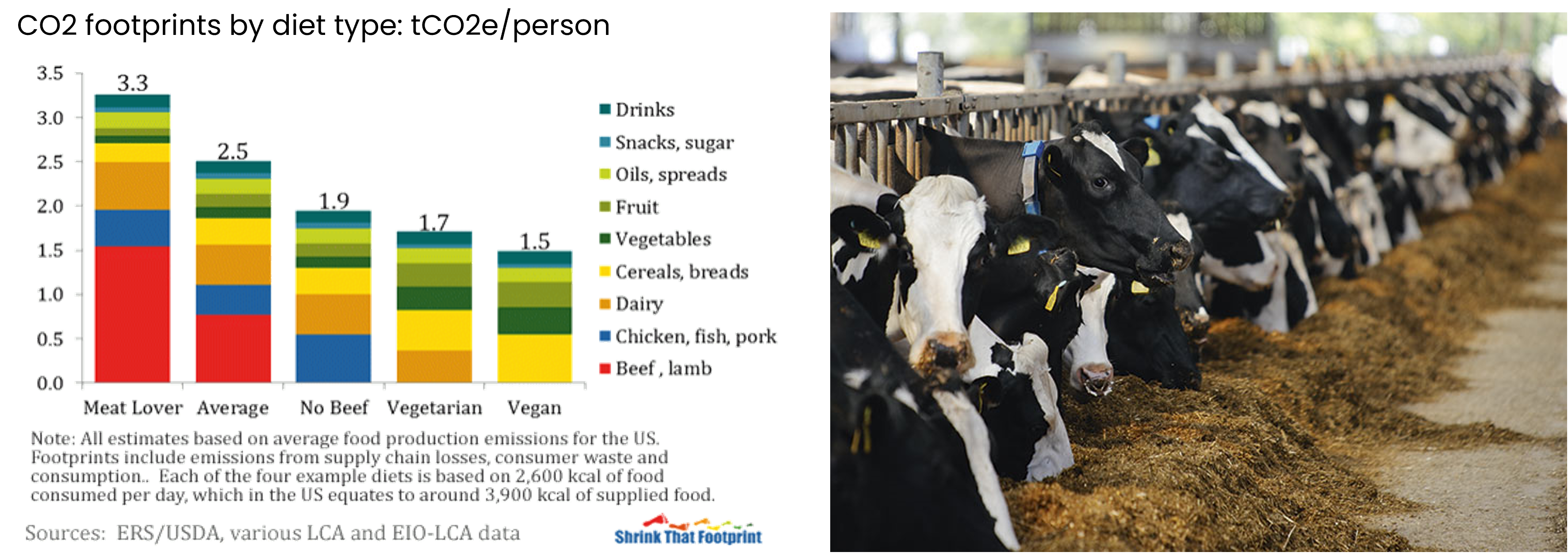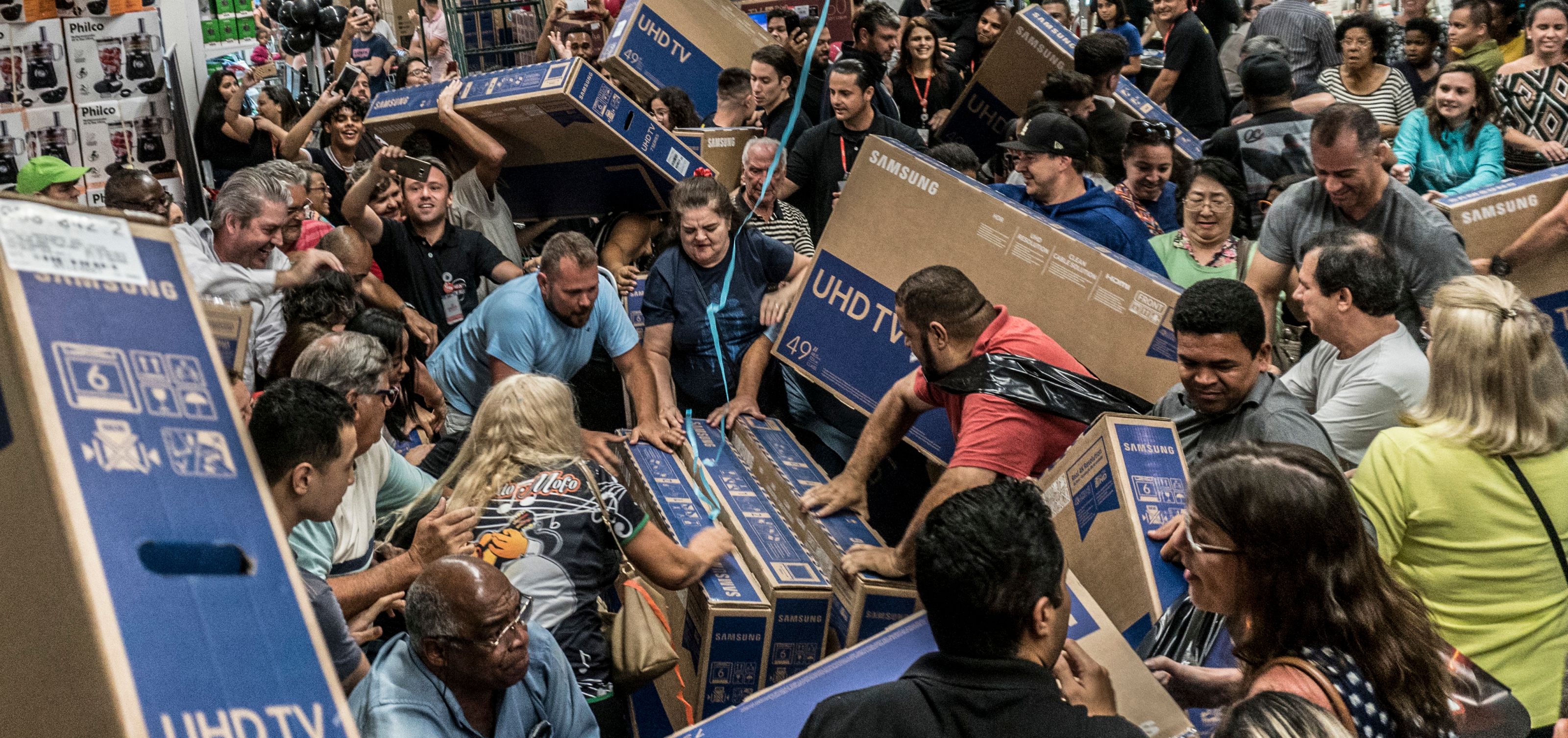Take It or Leave It Ideas on Reducing your Personal Carbon Footprint without Becoming a Hermit
Selva
4 min read
Share
The power of one
Feel free to close this page the second you find it patronising. That isn’t our intention. We aren’t here to make you feel bad about eating a bacon double cheeseburger or getting on a plane to Zante, there’s enough self-righteousness out there as it is.
What we want to do is give you some simple tips about how you can make a positive environmental difference in your own day-to-day without upending your routine or sacrificing some of the finer things in life. Luckily there are plenty of individual actions to reduce climate change that we can each consider. Offsetting is great, but if we can avoid greenhouse gas emissions getting into the atmosphere in the first place, even better.
Selva was founded on the belief in the power of collective action. In other words, loads of great people doing small things to make a big difference. We all have the power, so listen up and see if you fancy any of these tips for an easier, cleaner life...
I am only one but still I am one. I cannot do everything, but still I can do something. And because I cannot do everything, I will not refuse to do the something that I can do. - Edward Everett Hale
The world is what we eat
We get it. There’s something about that salty, fatty aroma of sizzling meat that makes us weak at the saliva glands. But is it really worth it? We’re starting this piece with diet because we think it’s the easiest way to make a sizeable impact in shrinking your footprint.
So, how bad is meat for the environment? Pretty frikken bad.
Here are some fun facts to help you understand the impact of our diets. The meat and dairy industry is responsible for a not-so-cool 14.5% of manmade global greenhouse gas emissions, largely generated by the energy intensive process of growing the feed for the 70 billion farm (S-E-V-E-N-T-Y BILLION!) animals that are reared every year, and from the methane in the burps of cows, pigs and sheep. All agriculture, meat plus veg, fruit, fish etc is responsible for over 30% of total global CO2 emissions
Nearly 80% of global agriculture land is used for livestock production, but livestock only provides less than 20% of our global calories. This is because beef uses ~35x more land to generate the same amount of protein as grains. Imagine if instead we used some of this land for something else. Something like tree planting, perhaps.
Meanwhile, clearing land for cattle is the leading cause of deforestation (which itself contributes 10%-15% of greenhouse gas emissions), and industrial farms are huge sources of toxic waste: Factory farms in the US alone generate 13x as much sewage as the entire US population does! What a load of bullshit…sorry.
The mind-blowing stats about the impact of livestock on the environment go on and on. We’re not saying go veggie overnight, but what about cutting meat out for just one day a week and starting from there? #MeatfreeMondays, anyone? By just removing red meat from her diet, the average European would reduce her annual footprint by ~6%. Not bad, right?
Not eating meat is no longer as taboo as incest, and there are tons of great companies making meat alternatives that don’t look and taste like soggy cardboard, while decent veggie recipes and meat-free menu options are everywhere. Learn more about the impact of our diets on the environment here.

Getting around
Ok, this is hard. We dig travelling too. Exploring this planet is one of life’s great pleasures, and our love for what we have seen in the four corners of the globe is what inspired us to create Selva in the first place. But let’s be real, flying is bad news for the environment. Just one return economy flight from London to New York emits ~0.7tCO2e per passenger, this is equal to ~7% of the average European’s annual emissions.
If you can feasibly take the train, great. Or maybe consider a trip closer to home. You’ll be surprised by what you can discover in your home country. I know we’re all tired of Zoom but what about a conference call instead of flying for a business trip?
It’s a similar story for driving. We owe a lot to cars, they just make life easier. But, unlike flying, there are good alternatives and emerging technologies are promising to decarbonize the sector. While we wait for widespread self-driving, electric-powered cars, and better transport infrastructure, there are a few small things to consider which will reduce your emissions from driving.
Try to take public transport if you can, or cycle, or walk. You’ll save a bunch of money, get fit and avoid the hellish stress of sitting in traffic. If you do drive, try to go smooth on the gas and breaks, make sure your car is up to date on its servicing and that there is enough air in the tyres. All these things will improve the fuel efficiency of the car, thereby reducing your emissions and saving you cash.
Buying stuff
Consume more, they said. You’ll feel better about yourself, they said. Everywhere we turn we’re bombarded with adverts and social pressures that try to persuade us that buying more things will improve our self-worth. This is nonsense. Besides the damaging impact this has on our well-being, all this stuff we buy also has a big effect on the environment.
Everything we buy has a footprint. Emissions and other waste are created at every stage of the process from raw mineral extraction to manufacturing, to transportation, to disposal. Do you really want that ice-cream-maker that you’ll use once and never touch again? Instead of buying, how about borrowing? Or buy less often, but buy higher quality items that will last you longer. Recycle and repair what you can, and try to avoid fast fashion. Three out of five fast fashion garments end up in landfill within a year of purchase and the fashion industry is responsible for ~10% of global greenhouse gas emissions. Try to buy local goods to reduce the emissions associated with their transportation and buy from companies that are environmentally responsible and sustainable. This is all called “conscious consumerism”. In other words, think before you buy.
Stop buying crap, and companies will stop making crap - Some wise person

In da house
On average, ~15-20% of our personal carbon footprints come from lighting, powering and heating our homes. All those Netflix binges, baking sessions, and air-conned rooms require energy and therefore create emissions. Thankfully there are a load of small and simple things you can do to reduce your energy usage at home, saving money in the process. Switch your lightbulbs to LED lights, which use up to 85% less energy than traditional lighting, last up to 15 times longer and are cheaper to run than incandescent lights. Reduce the water heat on your washing machine, switch off the lights when you’re not in the room, and think about going easy on the air con and heating.
What we’re trying to say is
Don’t stop enjoying the things that make life worth living, but just take the time to think about the changes you are willing and able to make that will bring your personal footprint down. We can all take individual actions to reduce climate change and, for those emissions that we can’t or won’t get rid of, we have trees and offsets. That’s what Selva is here for.
Sources:
http://shrinkthatfootprint.com/food-carbon-footprint-diet
http://www.animalmatters.org/facts/farm/
https://ourworldindata.org/agricultural-land-by-global-diets
https://www.climatecouncil.org.au/deforestation
https://foodprint.org/issues/what-happens-to-animal-waste
https://www.bbc.com/news/science-environment-49349566
https://www.worldbank.org/en/news/feature/2019/09/23/costo-moda-medio-ambiente
https://transitionmalvernhills.org.uk/sldies2019/
https://genless.govt.nz/living/lower-energy-homes/led-lighting/
